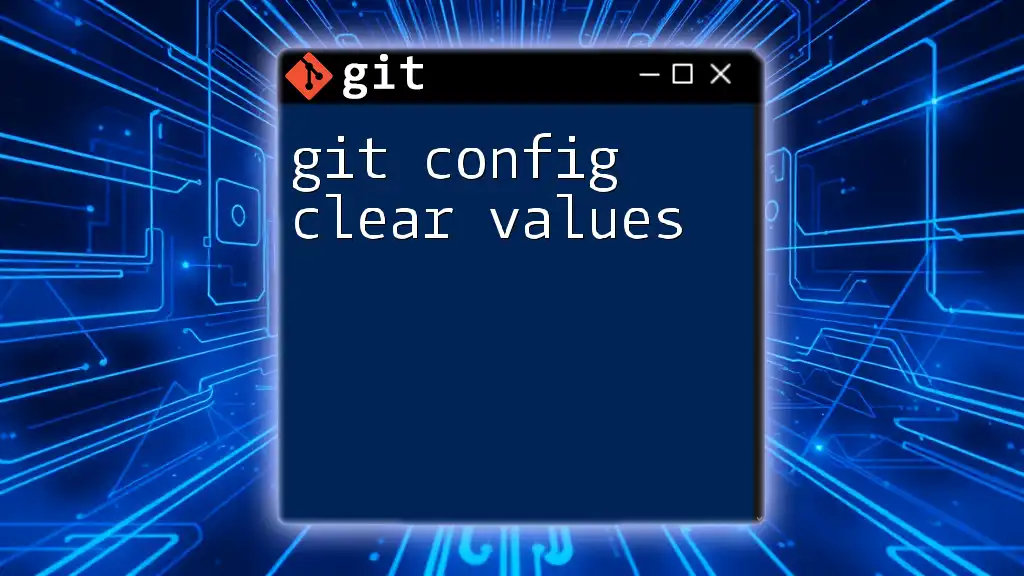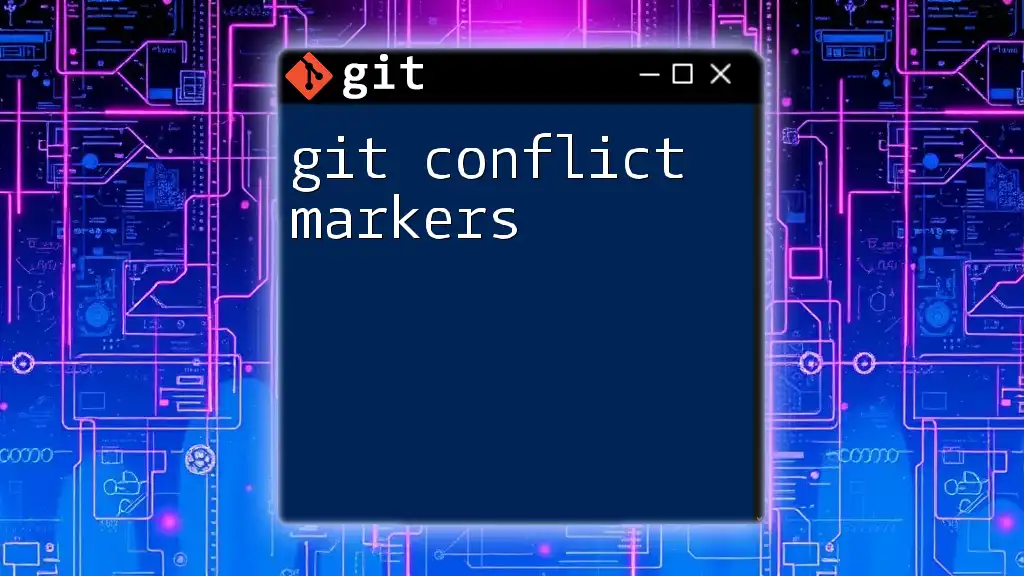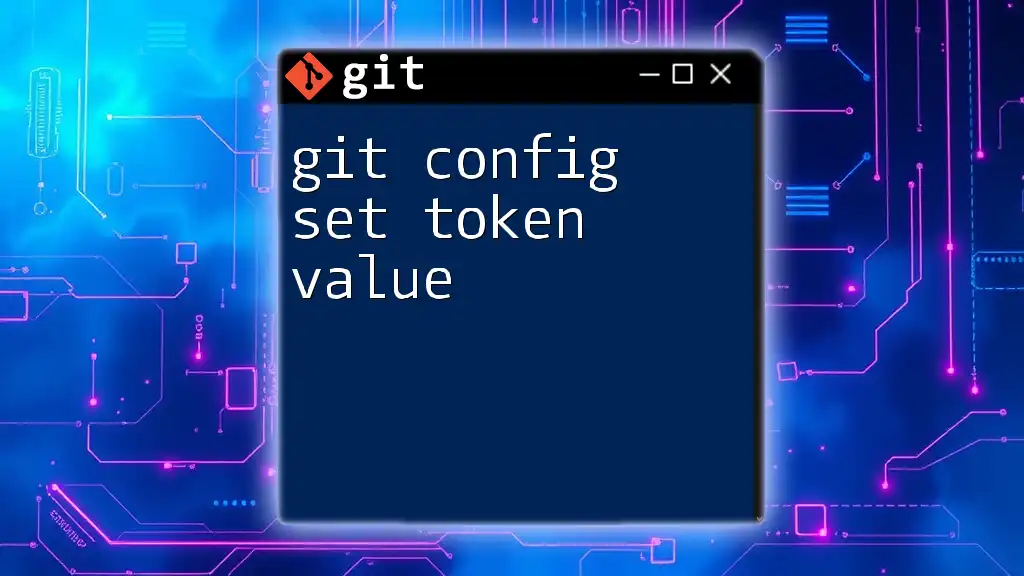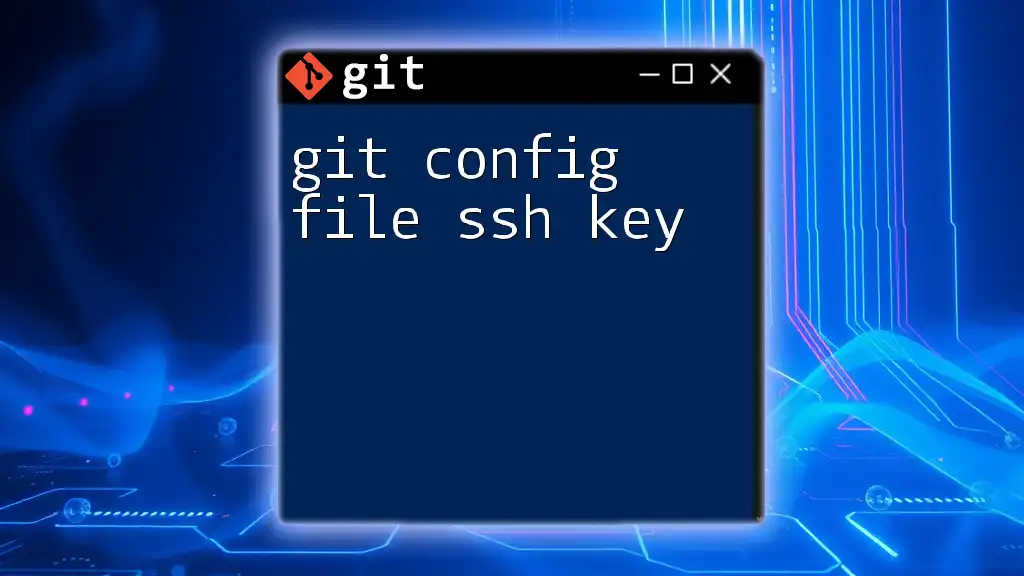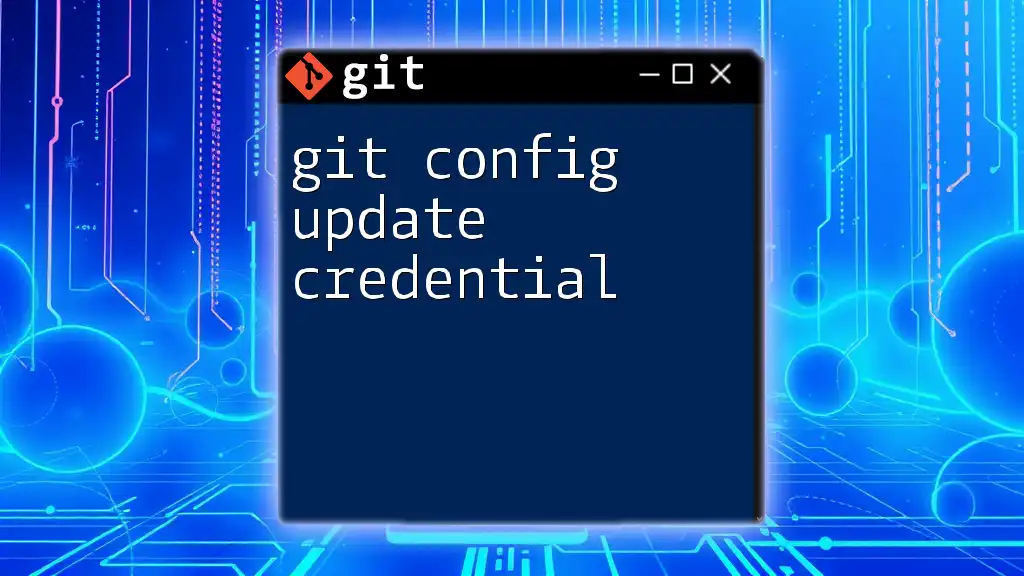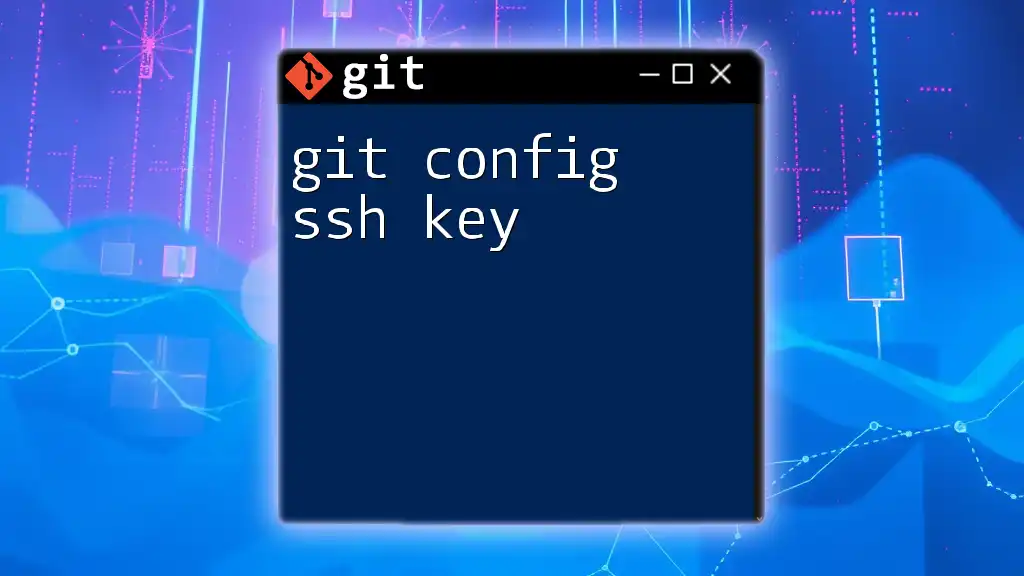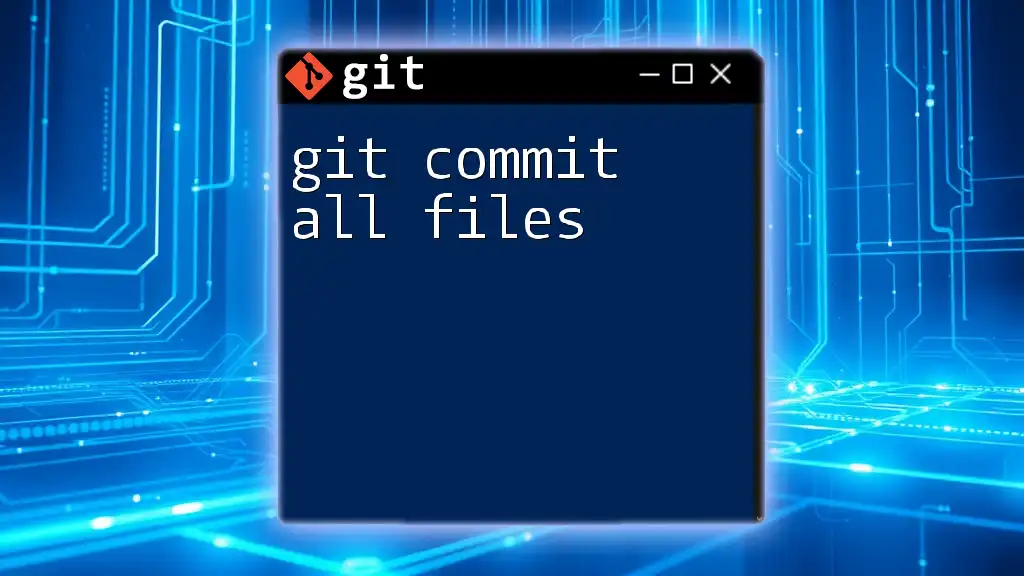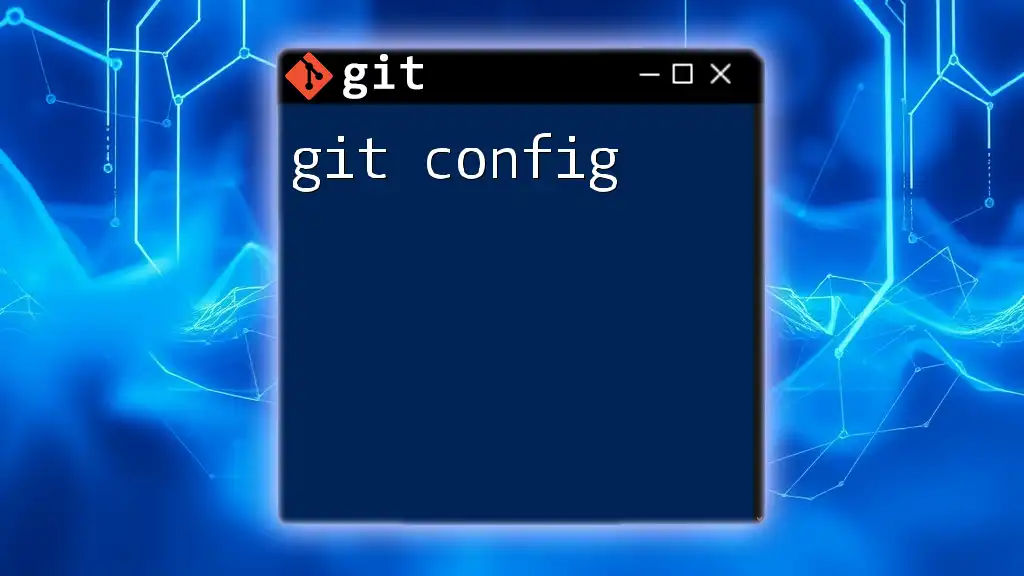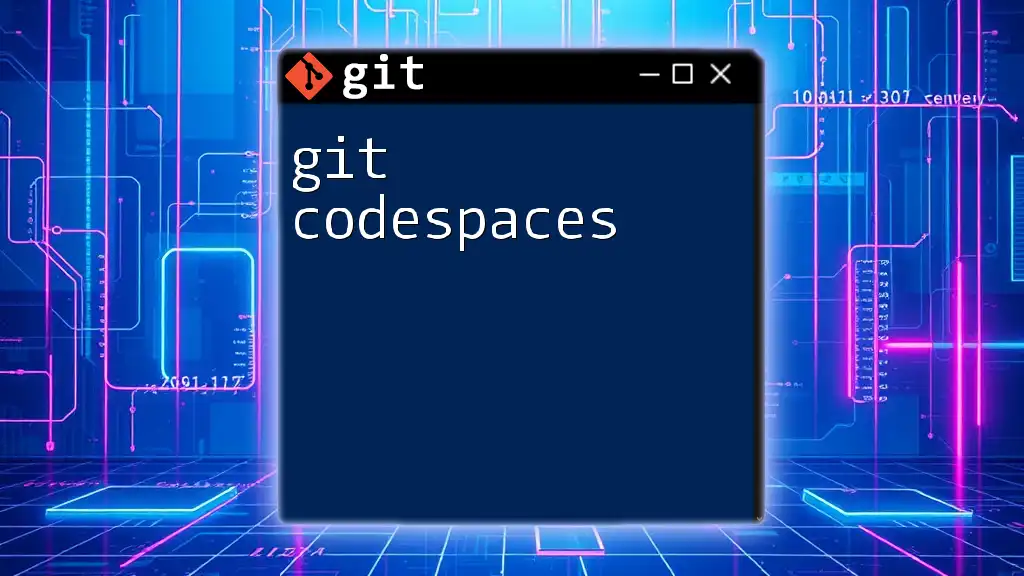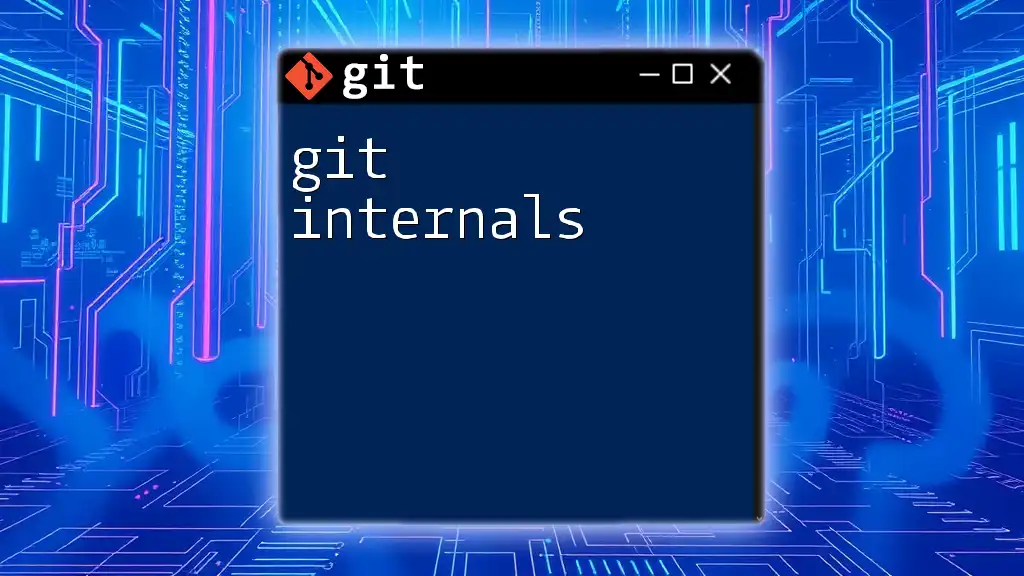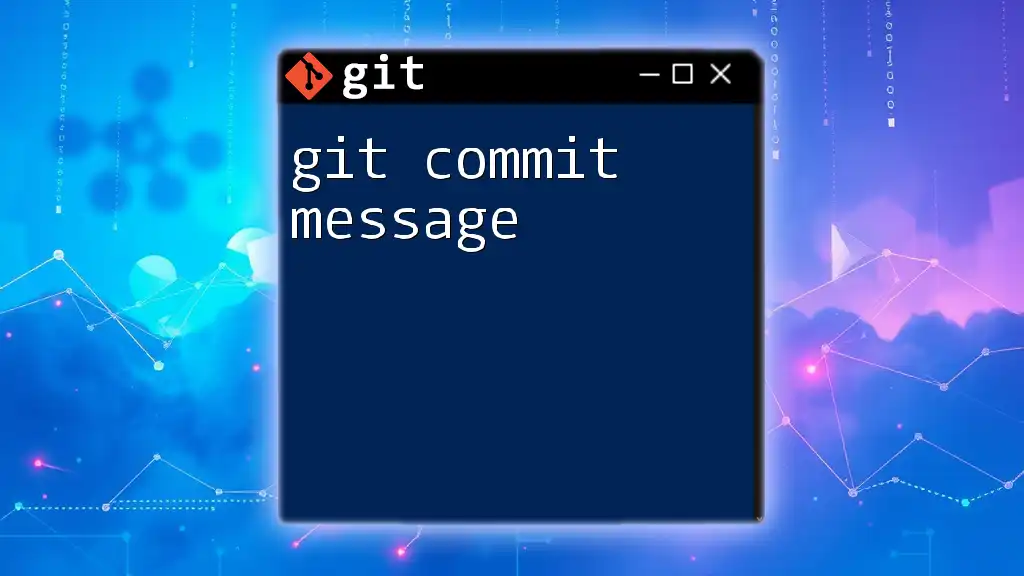The command `git config --unset` is used to clear specific configuration values in Git, removing them from the global or repository settings.
git config --unset user.name
Understanding Git Configuration
Git configuration is an essential part of using Git effectively. It allows users to customize how Git behaves on a per-repository or global basis. Understanding how to manage these configurations is crucial for maintaining productive workflows and ensuring that Git operates in alignment with your development practices. Through `git config`, users can set various parameters like user information, editor preferences, and even aliases for commands.
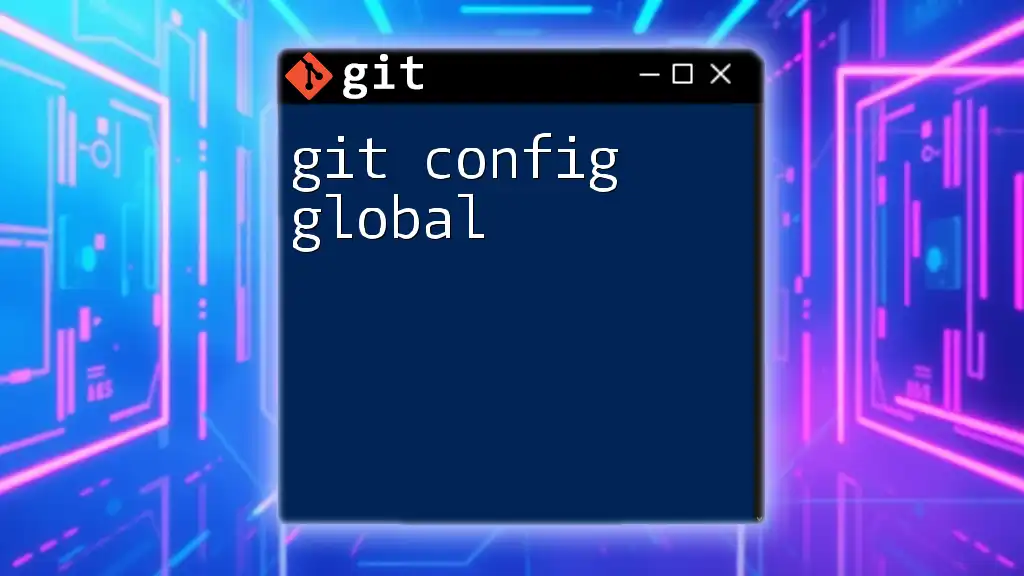
Purpose of This Guide
This guide aims to provide a detailed overview of how to clear values in your Git configurations. Whether you're inadvertently set up with incorrect user details or you need to remove outdated settings, this article will guide you through the process of achieving clean and effective Git configurations.
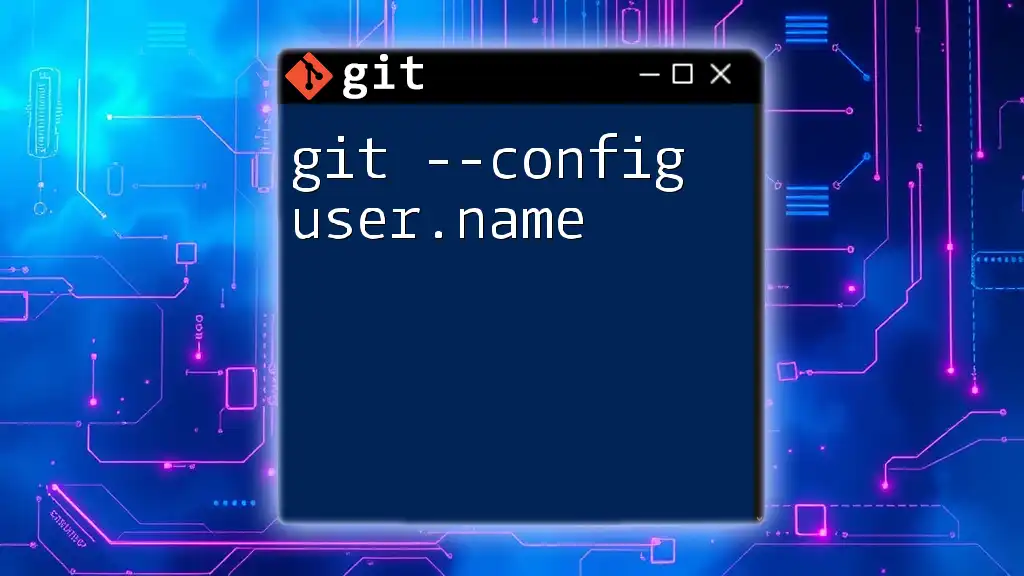
Exploring Git Config Settings
Default Git Configuration Files
Git uses multiple configuration files to define its settings. Understanding these files is essential for effective management.
-
Global Configurations: These settings are stored in a user-specific file, usually located at `~/.gitconfig`. This file controls all Git operations associated with the user across any repository.
-
Local Configurations: Each repository also has its local configuration file located in the `.git` directory, typically named `config`. This file overrides global settings for that specific repository, enabling you to customize Git's behavior locally.
Common Git Config Settings
Among the many options available via Git configurations, several settings are particularly common:
- User Information: Your username and email must be configured for commits to reflect the correct author information.
- Aliases: You can create shortcuts for your frequently used Git commands, such as `git st` for `git status`.
- Editor Configuration: Set your preferred text editor for commit messages and other Git txt-related tasks.
- Core Settings: These include settings that affect how Git operates, such as line endings and file storage preferences.
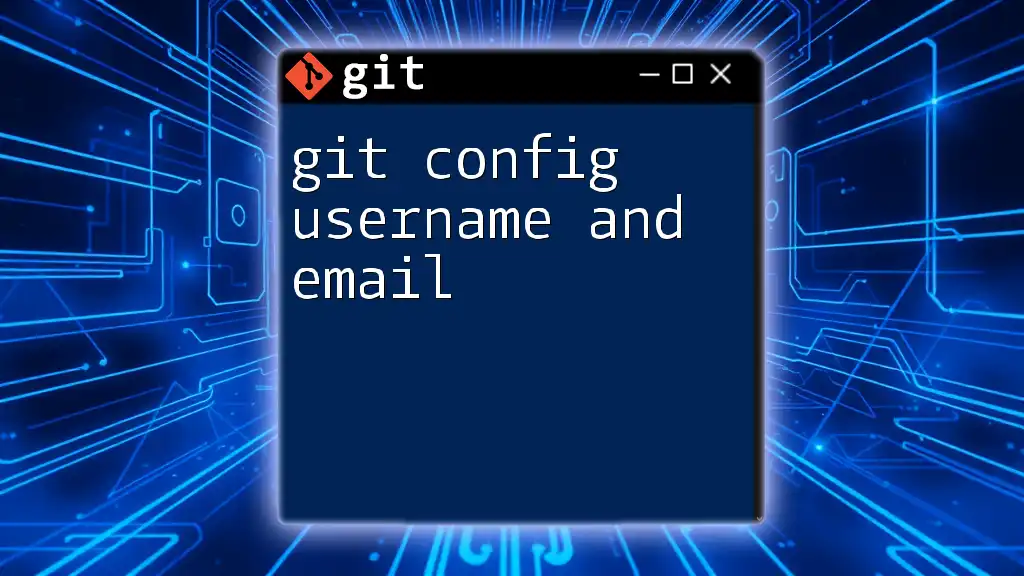
The Need to Clear Git Config Values
When to Clear Configuration Values
There are several scenarios where clearing a value in the Git configuration may be necessary. For instance, if you have used your personal email for work-related commits and vice versa, you may wish to remove these values to set them correctly. Additionally, during a transition between projects or teams, old settings that are no longer relevant can create confusion and undo efforts.
Potential Consequences of Incorrect Configurations
Incorrect configurations can lead to unexpected behaviors. For example, you might inadvertently commit with the wrong author name, causing confusion in your project’s commit history. Therefore, adopting best practices for configuration management—such as regularly auditing your settings—can save you from future troubles.
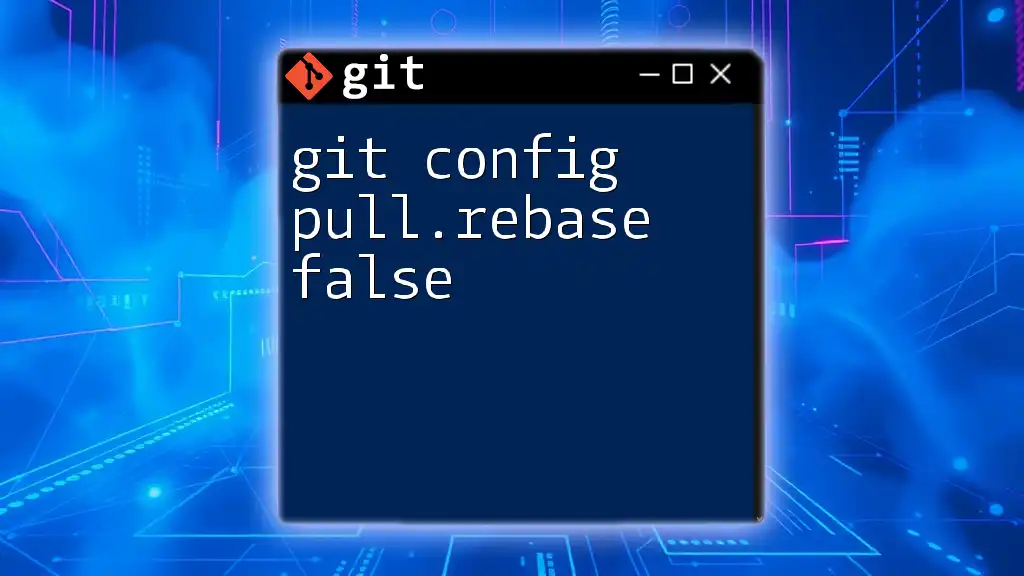
How to Clear Git Config Values
Using the Command Line to Clear Config Values
To clear configurations, Git provides a straightforward command: `git config --unset`. This command effectively removes specified configuration values.
Clearing Values from Global Config
To clear values from your global configuration, use the following command:
git config --global --unset user.name
This command will remove the `user.name` entry from your global `.gitconfig` file.
Example: Removing email from global settings
If you need to remove your global email:
git config --global --unset user.email
Clearing Values from Local Config
To clear local configuration settings for a specific repository, navigate to your repository directory and enter:
git config --unset remote.origin.url
This effectively clears the URL for the `origin` remote, allowing you to set it afresh as necessary.
Clearing Multiple Configurations
In some cases, you may want to clear several settings at once. You can do this by executing multiple commands in sequence:
git config --global --unset user.name
git config --global --unset user.email
This method is efficient for cleaning up multiple entries in one go.
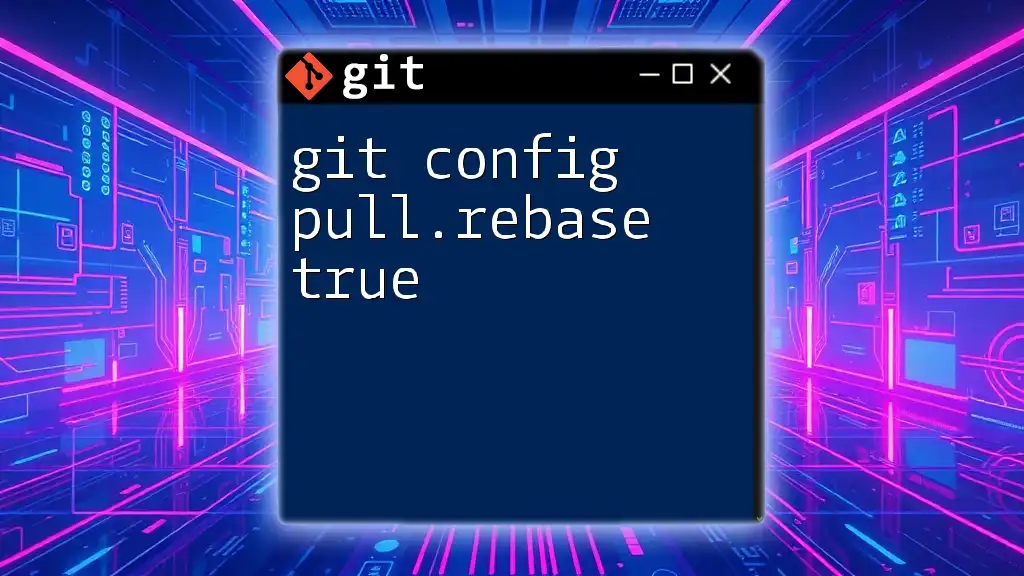
Verifying Changes After Clearing Values
Using `git config --list`
After clearing configuration values, it’s always good practice to verify changes. You can do this using the following command:
git config --global --list
This command displays all current global configuration values, enabling you to confirm whether the required entries have been successfully cleared.
Troubleshooting Missing or Incorrect Values
If you find that values are still referenced or appear incorrect, consider revisiting the configuration files directly. Sometimes changes need a manual update if they haven’t been applied correctly. Double-check the paths for clarity and ensure that you’re working in the correct scope (global vs. local).
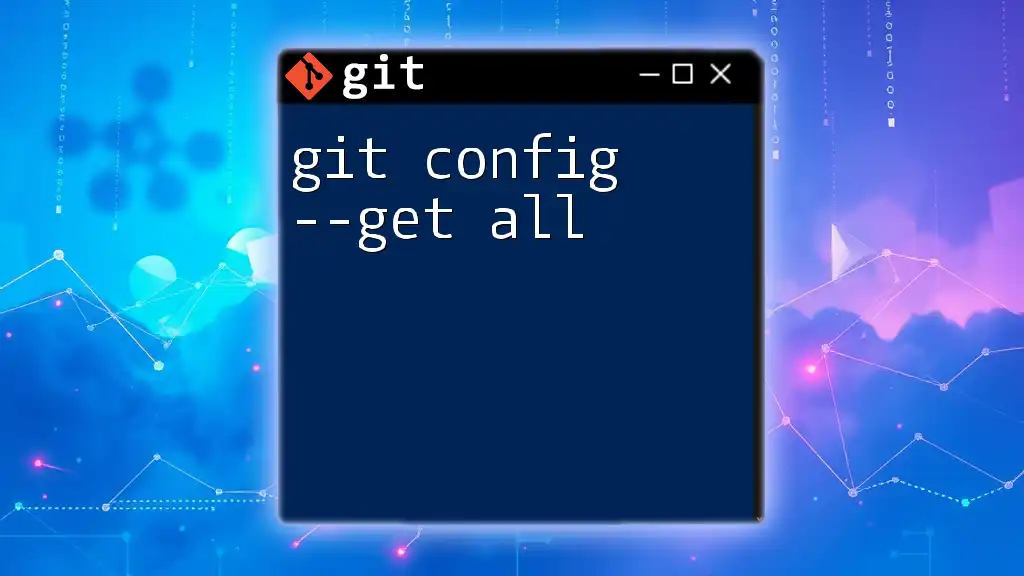
Best Practices for Git Config Management
Maintaining a Clean Git Environment
Adopting a routine for checking your Git configurations can prevent clutter. Regular inspections help ensure that your settings remain relevant and correctly configured, avoiding scenarios where forgotten entries misalign project expectations.
Documenting Changes
Documenting any changes to your Git configuration with comments can be incredibly beneficial, especially in team environments. Use comments within your configuration file to describe the purpose of each setting. This helps facilitate smoother collaboration and enables team members to understand configurations without guessing.
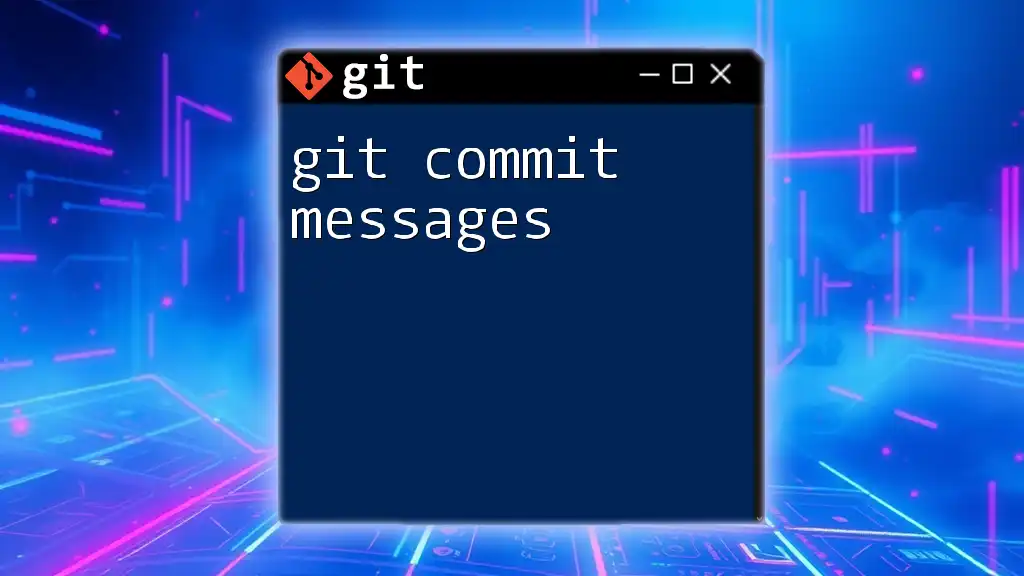
Conclusion
In summary, effectively managing Git configurations by understanding how to clear values is pivotal for maintaining a streamlined workflow. By following the steps outlined in this guide, you can ensure that your Git settings remain precise and relevant.
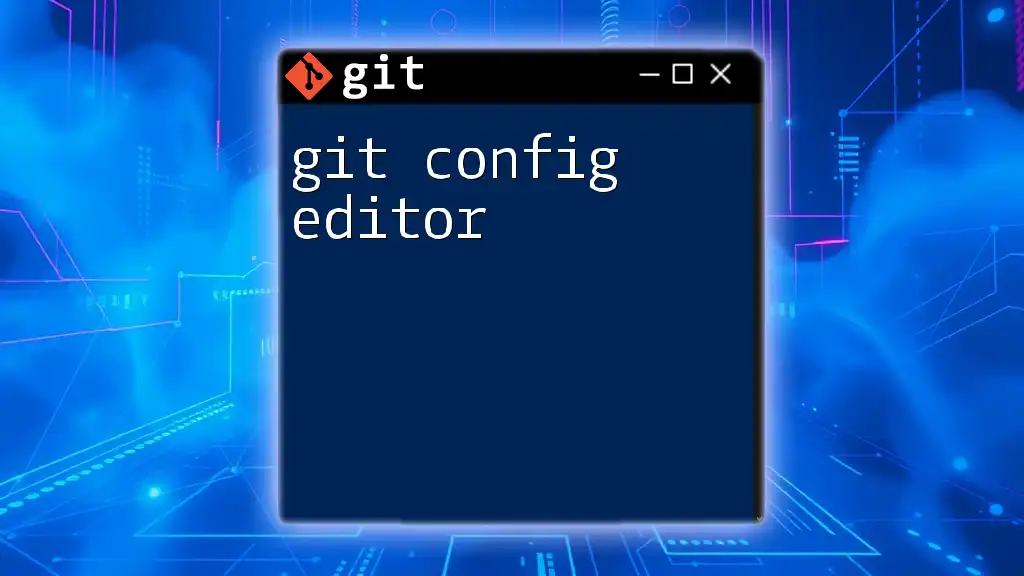
Encouraging Further Learning
To further enhance your Git knowledge, explore additional commands and their functionalities. Whether you’re new to Git or looking to refine your skills, continuous learning will contribute to your development prowess.
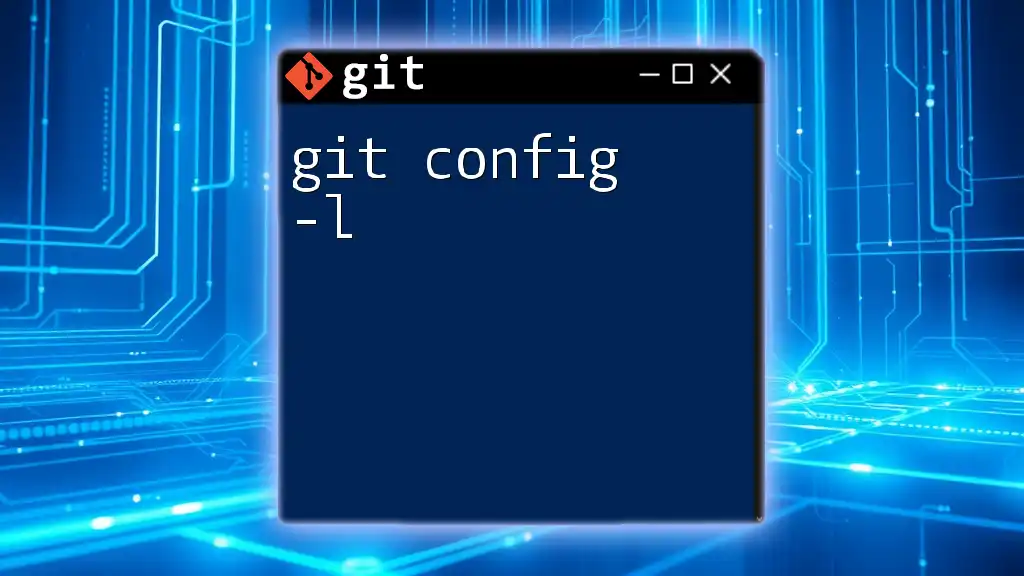
Call to Action
If you found this guide helpful, explore our Git command training programs. We offer sessions designed to help users at all levels become more proficient with Git commands and configurations. Join us to enhance your skills and understand Git like a pro!

